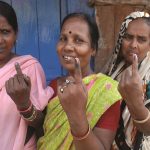Dr Birgitta Rabe and a team of researchers from the Institute for Fiscal Studies, the University of Bristol, the University of Sussex and UCL have examined a range of data sets to understand how parents react to a better-than-expected school inspection report
Blog
ISER researchers discuss their work in these blog posts.

Family fortunes – and how they persist over generations
- Min Zhang
ISER’S Dr Min Zhang and Professor Yaojun Li of the Cathie March Institute for Social Research at the University of Manchester explore what impact grandparents’ social class has on their grandchildren’s opportunities, from childhood through to later life

Economic uncertainty and fertility cycles: The case of the post-WWII baby boom
- Bastien Chabe-Ferret
In a blog for Vox EU, Bastien Chabe-Ferret and his CEPR colleague Paula Gobbi explore the drivers of fertility over the past century and to what extent it is affected by economic climate.

How renting could affect your health
- Amy Clair
Writing for The Conversation, Amy Clair and Amanda Hughes explain their findings on the link between people’s housing situation and levels in their blood of C-reactive protein (CRP), a marker associated with stress and infection.

The feminisation of Indian politics is an exciting phenomenon of our time
In an opinion piece for the Hindustan Times, Sonia Bhalotra explains how her research with co-authors T. Baskaran, B. Min, Y. Uppal demonstrates that raising the share of women in India’s state legislative assemblies is likely to lead to higher economic growth.

Are female legislators good for economic growth?
There has been a phenomenal global increase in the proportion of women in politics in the last two decades, but there is no evidence of how this influences economic performance. In a blog for the International Growth Centre, Professor Sonia Bhalotra and co-authors investigate this using data on competitive elections to India’s state legislative assemblies.

Beyond Shelter: The role of home in health and wellbeing
- Amy Clair
Dr Amy Clair has been looking at the impact of insecurity at home on our health and wellbeing.

How leader identity impacts group coordination
- Irma Clots-Figueras
- Lakshmi Iyer
- Joseph Vecci
- Sonia Bhalotra
In principle, leaders can facilitate group coordination towards a common goal but in diverse societies, their effectiveness may depend upon their social identity, and how citizens react to leader identity. Sonia Bhalotra and co-authors Irma Clots-Figueras (Madrid), Lakshmi Iyer (Notre Dame) and Joseph Vecci (Gothenburg) investigate in a blog for Ideas for India.

The ticking clock: how genetics may explain fertility traits
- Nicola Barban
- Melinda Mills
- Felix Tropf
A new study by MiSoC Co-Director Nicola Barban, with Melinda Mills and Felix Tropf of the University of Oxford, allows the inclusion of a genetic variable or predictor of reproductive behaviour in social science research for the first time.

When it comes to fees, what do students think?
In an article for the New Statesman, Dr Angus Holford explores in detail what students think of how university fees could be administered in a reformed system where the overall student contribution and taxpayer contribution stayed the same.

When gold prices go up, so does the cost of a dowry – and baby girl survival rates in India fall
Gold is a central component of dowries in India. Writing about her new research in The Conversation, Professor Sonia Bhalotra finds that when the cost of gold rises, so does the death rate of baby girls in the first month of life.


